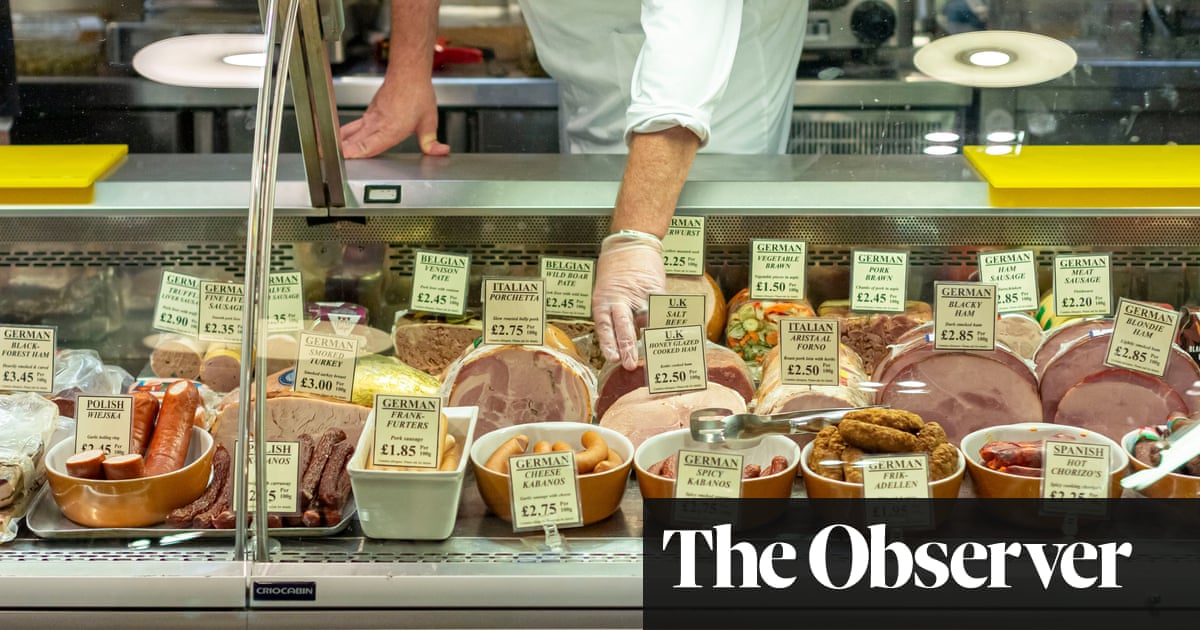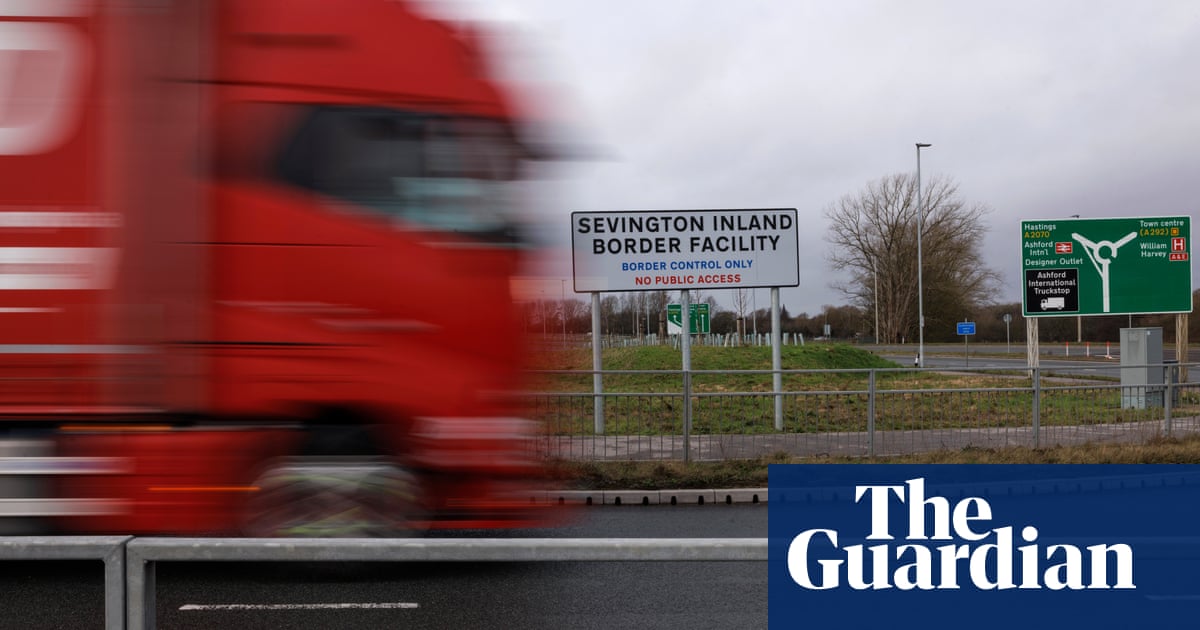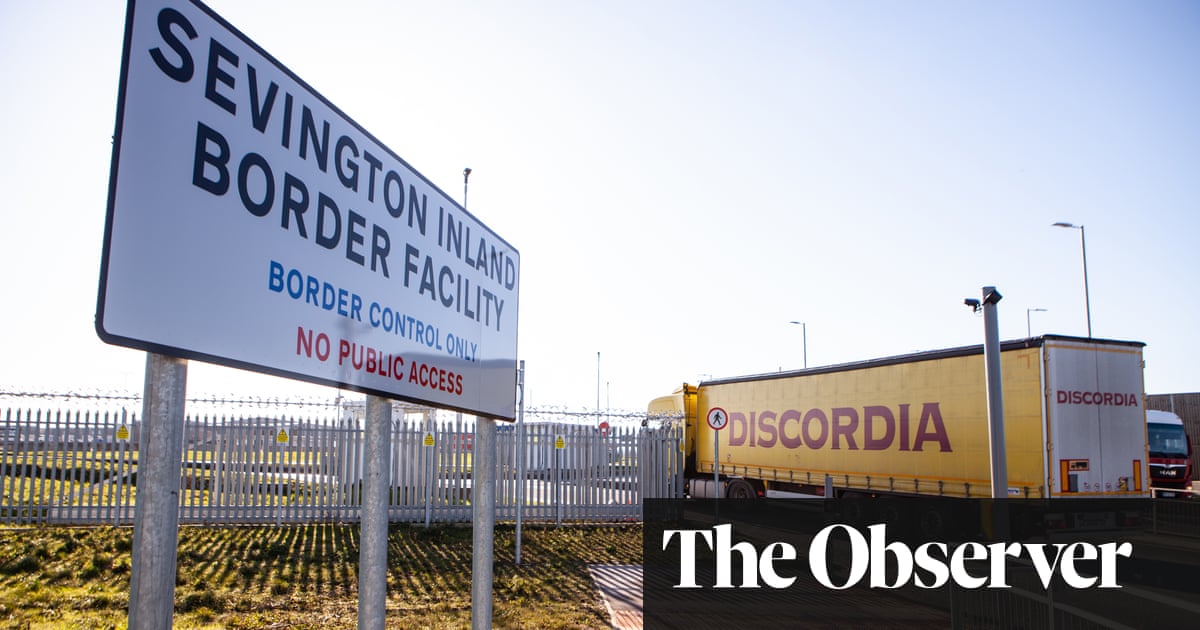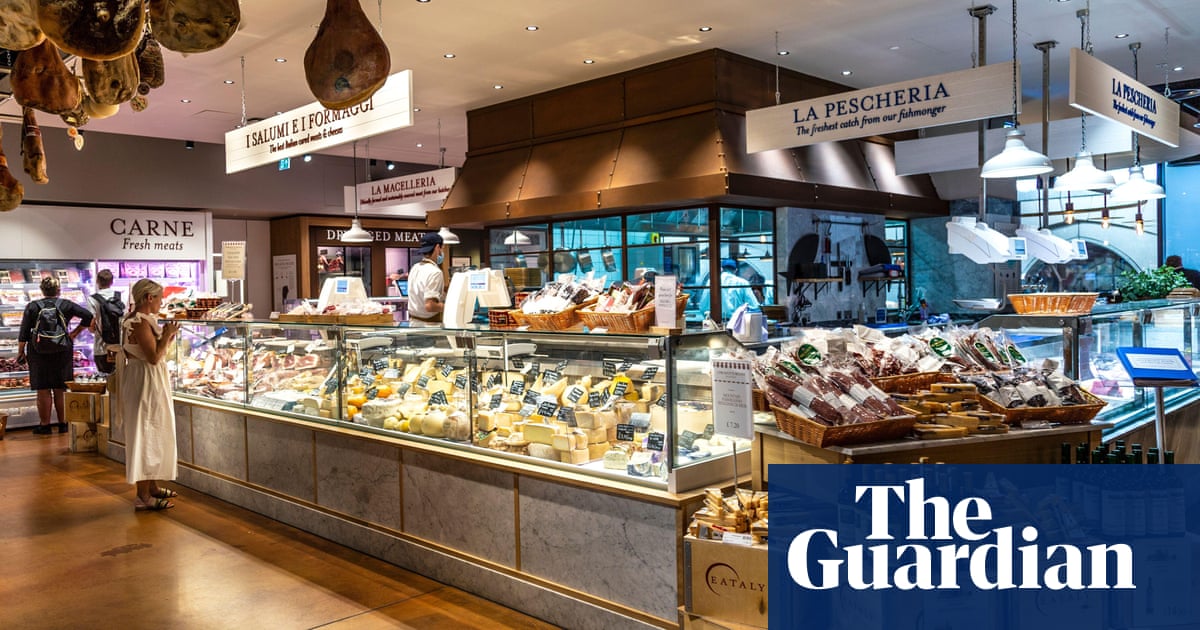
Ministers’ decision to impose Brexit import checks on 30 April will lead to shortages of some foods, flowers and herbs, industry leaders have warned.
In the week after the government was accused of blindsiding the British food industry by giving 27 days’ notice that every consignment of items such as camembert, steak, tulips and chives would be subject to fees of up to £145, small retailers such as delis and farm shops have been scrambling to make sure they still have products to sell.
But they say some EU exporters have already decided that they have had enough of British red tape and are either pausing supply operations or have given up completely.
Food wholesalers and trade associations have told the Observer of suppliers in EU countries who are already looking at other markets instead of the UK. Since 2020, importers have had to deal with mounting levels of Brexit bureaucracy, including phytosanitary certificates, plant passports, import licences and export health certificates. Next month, they will have another form to fill out for animal products, plants and herbs and must pay a “common user charge” (CUC) of up to £145 per consignment.
Ministers say this is only intended to cover the costs of new facilities, including a £154m inland border control site at Sevington in Kent, and not generate a profit. However, the Cold Chain Federation (CCF), a trade body for suppliers, estimates the government will reap a Brexit dividend of £60m, and the process will add £1bn to the cost of importing chilled food and plants. The insurer Allianz Trade said last week that overall food import costs would rise by 10% in the first year of the new regime.
In a letter to Steve Barclay, the environment secretary, the CCF’s chief executive, Phil Pluck, said that after UK exporters became subject to new rules in 2021, “many smaller cold-chain UK warehouses and distributors found the administration too onerous and ceased to operate”.
The new border rules mean “the effect on both European partners and UK firms may be similar”, Pluck said, calling for a delay to border checks.
Nigel Jenney, chief executive of the Fresh Produce Consortium, said the government had failed to recognise that importing food was a rapid, overnight process, and that some importers would pay more in fees than the amount they make from shipping food. He said ministers could have reduced costs for some importers by allowing them to use some of the UK’s 41 “control points” – privately operated border checks. But government inspectors will not be available overnight, when most fresh food is delivered, forcing importers to use Sevington, he said.
“We need those control points to be serviced by government officials to inspect the hours of trade our industry works. We need that done within days. Because we have had several major exporters simply saying: ‘On this basis, the UK is too complicated to trade with. I won’t do it’.”
The new controls do not apply to fresh fruit and vegetables, but rules for these are likely to come into force in October – an obligation under the terms of Boris Johnson’s Brexit deal – and there are already signs that suppliers of lower value crops such as blueberries and cucumbers are sending their produce elsewhere.
British farmers warned last week of an exceptionally poor harvest this year, after heavy rainfall and flooding, making the UK even more reliant on imported food.
The new import controls will also make it more expensive for farmers to import seed potatoes and other crops.
Mike Parr, director of logistics firm PML Seafrigo, said: “I think with all specialised deli items, the Italians, French and Greeks have said it’s not worth their while with these charges. Poland is a big blueberry supplier to the UK and they are starting to mention it’s not worth their while any more. It’s starting to happen already, where they can get the same amount of money importing blueberries around Europe so it’s not worth it to send it to the UK. This will only get worse.”
Freddie Heathcote, managing director of Green and Bloom, a flower and plant wholesaler, said he could either pay for multiple consignments or save money by grouping deliveries. But that creates a risk of losing a whole shipment, worth up to £15,000, if a pest is spotted in one plant. “If that happens to me three times, it’s borderline curtains,” he said.
Stefano Vallebona, who supplies high-end restaurants through his company, Vallebona, said: “There are a lot of people who don’t want to go through this. They just say ‘we don’t want the extra charge so we’re not going to supply’. So there are going to be less interesting products from the smaller guys.
“The beauty of this country was that trade was so incredibly easy and well organised. But this is a major problem and it’s going to kill businesses.”
A government spokesperson said: “We want to support businesses of all sizes to adapt to the new border checks, and the common user charge follows extensive consultation with industry – with a cap set specifically to help smaller businesses.
“Our world-class border facilities will provide essential biosecurity checks to protect our food supply, farmers and environment against costly disease outbreaks entering the UK through the short straits.”












